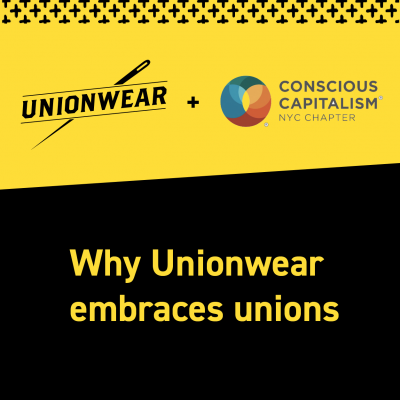
The company was purchased in 1992 with a fully-unionized workforce. Early on, and for largely idealistic reasons, we decided to keep the workforce unionized, because we believed that people should benefit from their hard work. We quickly figured out that working with the union was to our benefit.
When we first bought the company, our number one customers were labor unions, so we changed our name to Unionwear. To expand our customer base we dipped our toes into manufacturing fashionable baseball caps and hemp hats back in the early 1990s, long before they were cool or popular.
But then, around the year 2000, presidential campaigns started buying our hats as well. That’s when things really took off for us. Because it doesn’t look good when politicians talk about creating American jobs while buying hats from overseas.
For this and many other reasons, having a unionized workforce has been a strategic advantage for us. As you will see in later posts, it literally saved our business during the Covid-19 pandemic.
How unions help our employees and our company
In a lot of ways, government mandates have minimized the need for unions. The minimum wage is increasing incrementally for starters. Even more, companies with over 50 employees are now required to offer health insurance benefits and PTO (paid time off.)
For us, it has been much easier to deal with unions rather than negotiate with 180 employees individually for benefits. And, it is much less expensive to offer health insurance through a union which can use its bargaining power to bring those costs down.
And there are other advantages to working with a union. Having a unionized workforce brings in significant political and government business, especially for portfolios and tote bags. Most government employees are union members, which gives us a leg-up in securing government contracts. In fact, that represents 30% – 40% of our business.
So, although there are some disadvantages to working with a union, we have turned it into an advantage. We planned on treating our employees well anyway, so we have a good, rather than adversarial, relationship with them. It brought down costs in some areas. And it led to a lot of new business
See the interview here:

 Union Made In USA
Union Made In USA




